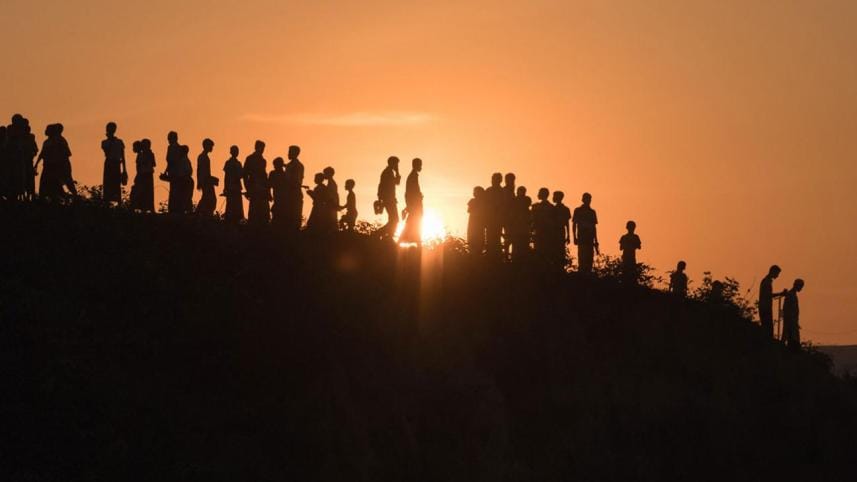Rohingya Atrocities: Malaysia wants perpetrators punished

Malaysia wants the perpetrators of atrocities against the Rohingyas be tried immediately at the International Criminal Court (ICC).
"The Malaysian government is openly adhering to the principle that criminals must be punished. The root problem is that the Rohingyas have been driven out from their own country," Malaysian Foreign Minister Saifuddin Abdullah said.
"For us, investigation into the case of Myanmar and the [humanitarian] crime is very important to be resolved at the root so that the criminals can be dragged to the court," he told reporters after visiting the Rohingya Education Centre (REC) in Klang on Tuesday.
Saifuddin added although the matter could take a long time, Putrajaya is very serious about the issue as such oppression has forced the Rohingya community to become refugees all over the world, reports Bernama, the state news agency of Malaysia.
In August last year, UN-appointed investigators recommended that Myanmar's top military commanders be brought to justice as it "undoubtedly amounts to the gravest crimes" against the general public, including genocide, under international laws.
A UN Fact Finding Mission report drew up a list of alleged perpetrators, including Myanmar's commander-in-chief Min Aung Hlaing and five other military commanders.
Referring to the report, Saifuddin said Putrajaya wants to be involved in ensuring that the "criminals" are brought to the ICC as soon as possible.
Meantime, Saifuddin said for the time being, Malaysia would still adhere to its principles to accept the Rohingya refugees, as most of them said they were too afraid to return to their homeland for safety reasons.
"Our government standpoint is we don't reject people [Rohingya refugees] from coming.
"On humanitarian grounds, we never send [Rohingya refugee] boats away. We don't have the capacity to do much more, but we never reject them. We want to do more to assist them," he said.
"We understand the concerns of our own people [about the presence of the Rohingya], but we do not have the heart to send them back to Myanmar just like that.
"The majority of them want to return, but for the time being, they feel unsafe about going back."
Saifuddin also believes that if there are social problems related to Rohingya in the country, local authorities will take necessary action.
As many as 88,880 Rohingyas live in Malaysia -- a portion of them registered with the United Nations High Commissioner for Refugees. Some 25 percent of the Rohingyas also received educational assistance provided by NGOs.



 For all latest news, follow The Daily Star's Google News channel.
For all latest news, follow The Daily Star's Google News channel.
Comments